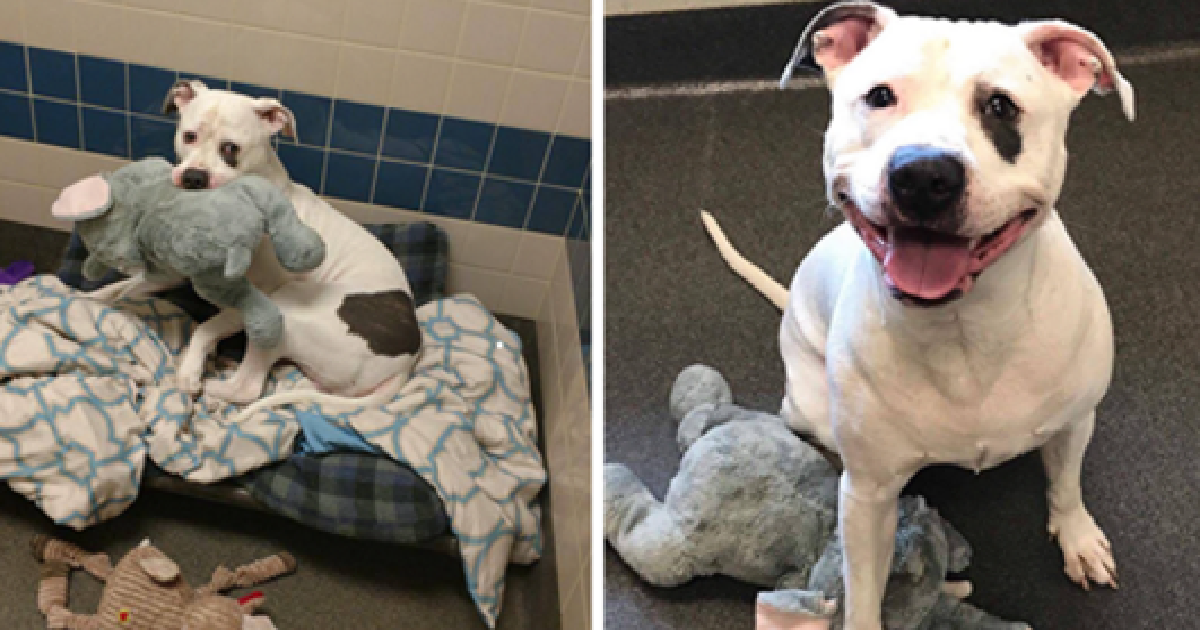Boston Terriers are well-known for their friendly demeanor and intelligence. These adorable dogs have a solid, stocky build with a large head and a charmingly short snout. Their black and white fur resembles a tuxedo, making them even more irresistible. So, are Boston Terriers smart?
When it comes to intelligence, Boston Terriers rank high among dog breeds. They are remarkably smart and can be easily trained. However, they do have a streak of stubbornness that can sometimes make training a bit challenging. But with patience and positive reinforcement, they quickly learn new commands and tricks.
Aside from being intelligent, Boston Terriers have a playful and clownish nature. They thrive on attention and love to entertain their owners. Whether they’re chasing after toys or making funny faces, they always find a way to bring joy to those around them.
It’s important to note that Boston Terriers require regular exercise to keep them happy and healthy. Daily walks and playtime sessions are essential to meet their energy needs. Additionally, proper grooming is necessary to maintain their coat and overall well-being.
While Boston Terriers are generally healthy dogs, they may be prone to certain health conditions such as cherry eye, cataracts, heart murmurs, patellar luxation, and allergies. Regular veterinary check-ups and proper care can help prevent and manage these issues.
Bringing a Boston Terrier into your family is a long-term commitment that requires time, effort, and love. Their intelligence, friendly nature, and playful personality make them wonderful companions for individuals and families alike.
Are Boston Terriers Smart
- Boston Terriers are smart and easily trainable.
- They have a playful and clownish nature, always seeking attention.
- Regular exercise and grooming are vital for their well-being.
- They may be prone to certain health conditions.
- Bringing a Boston Terrier into your family requires commitment and care.
Basic Characteristics and Temperament of Boston Terriers
Boston Terriers are delightful dogs known for their unique appearance and friendly temperament. With their tuxedo-style coat and compact body, they are instantly recognizable. These adorable pups vary in size and weight, but they all share the same solid, stocky build, large head, short snout, and erect ears.
When it comes to temperament, Boston Terriers are a true joy to be around. They are naturally friendly and never meet a stranger. Whether it’s greeting new people or getting along with kids and other animals, Boston Terriers have a remarkable ability to create positive connections.
Not only are they socially adept, but Boston Terriers also have a reputation for being intelligent and relatively easy to train. However, like any breed, they can be a bit stubborn at times. With consistent and positive reinforcement, they thrive in training sessions and quickly learn new commands and tricks.
One of the standout qualities of Boston Terriers is their affectionate nature. These little lap dogs love attention and are always eager to cuddle up and be close to their human companions. They have a playful and silly side, known to entertain with their antics and goofiness.
Early Socialization for Boston Terriers
Early socialization is crucial for Boston Terriers to develop confident and well-rounded personalities. Exposing them to various environments, sounds, smells, and experiences from a young age helps them feel comfortable and confident in new situations.
Introducing Boston Terriers to different people and animals during their socialization period allows them to grow into well-adjusted dogs. It helps prevent shyness, fearfulness, and aggressive behavior that can develop in dogs that lack early socialization.
Overall, Boston Terriers possess charming characteristics and a temperament that makes them excellent companions for individuals and families alike. Their friendly demeanor, intelligence, and affectionate nature make them the perfect addition to any loving home.
| Characteristics | Temperament |
|---|---|
| Tuxedo-style coat | Friendly and never meet a stranger |
| Compact body | Gets along well with kids and other animals |
| Solid, stocky build | Intelligent and relatively easy to train |
| Large head and short snout | Affectionate lap dogs that love attention |
| Erect ears | Playful and entertaining |

Exercise and Grooming for Boston Terriers
Boston Terriers are known for their active nature and enjoyment of both indoor and outdoor play. While they are well-suited for apartment living, they still require regular physical activity to prevent boredom and destructive behavior. To keep your Boston Terrier healthy and happy, it is important to provide them with opportunities for exercise and playtime.
Exercise Needs
Boston Terriers have moderate exercise needs and generally require at least one walk a day. However, the amount of exercise they need may vary depending on their energy levels. Some Boston Terriers may benefit from additional exercise, such as going for runs, playing chase in a fenced yard, or visiting dog parks.

Playtime and Physical Activity
In addition to walks, Boston Terriers enjoy engaging in playtime and physical activities. This can include playing fetch, participating in agility, rally, or flyball courses, or even swimming. These activities not only provide physical exercise but also stimulate their minds, keeping them mentally sharp and alert.
It is important to note that while Boston Terriers are active, they are not hyperactive dogs and can adapt well to apartment living if their exercise needs are met. Regular playtime and activities will help prevent them from becoming bored or restless.
Grooming Needs
Boston Terriers have short, smooth fur that requires minimal shedding control. Regular brushing with a soft brush or a rubber grooming mitt helps to remove loose hair and keep their coat looking neat. Bathing is only necessary when they become dirty or smelly, as frequent bathing can strip their skin of its natural oils.
Aside from brushing, there are other grooming tasks that you should regularly attend to. This includes nail trimming to maintain proper nail length, ear cleaning to prevent infections, and teeth brushing to promote good dental hygiene. Regular grooming not only keeps your Boston Terrier looking their best but also helps to identify any potential health issues early on.
Vet and Medical Care for Boston Terriers
Boston Terriers are generally a healthy breed with an average lifespan of 13-15 years. However, they can be prone to certain health conditions that pet parents should be aware of. Regular veterinary care is essential to ensure the overall health and well-being of Boston Terriers.
Common Health Conditions
Some commonly seen health conditions in Boston Terriers include:
- Cherry Eye
- Cataracts
- Heart Murmurs
- Patellar Luxation
- Allergies
If pet parents notice any concerning symptoms or behaviors such as redness or swelling around the eyes, difficulty seeing, abnormal heart sounds, or limping, it is important to seek veterinary assistance promptly. Early detection and intervention can help manage these conditions effectively.
Regular Veterinary Care
Regular check-ups and vaccinations are crucial to ensure the long-term health of Boston Terriers. These routine visits allow veterinarians to assess their condition, provide preventive care, and address any emerging health issues before they escalate. During these visits, the vet will conduct a thorough physical examination, administer vaccines, and discuss preventive measures such as flea and tick control and heartworm prevention.
Veterinary care also includes preventive measures in maintaining dental health. Regular teeth brushing and professional dental cleanings can help prevent dental diseases and ensure fresh breath.
Additionally, pet parents should be aware of their Boston Terrier’s weight. Obesity can lead to a variety of health issues, including joint problems, heart disease, and diabetes. Maintaining a healthy weight through appropriate nutrition and regular exercise will help keep Boston Terriers in prime condition.
Pet Insurance
Considering the potential health issues faced by Boston Terriers, it is recommended to consider pet insurance. Pet insurance can help alleviate the financial burden associated with veterinary care. It provides peace of mind, knowing that medical expenses will be covered, enabling pet parents to provide the necessary treatment for their beloved Boston Terriers without hesitation.
| Health Condition | Description |
|---|---|
| Cherry Eye | A protrusion of the third eyelid, which can cause discomfort and may require surgical correction. |
| Cataracts | Clouding of the eye’s lens, leading to impaired vision or blindness. Can be managed through surgery. |
| Heart Murmurs | Abnormal heart sounds caused by structural issues or underlying health conditions. Regular monitoring is necessary. |
| Patellar Luxation | A condition where the kneecap slips out of place, causing lameness and discomfort. May require surgical correction. |
| Allergies | Boston Terriers can be prone to allergies, resulting in itchy skin, ear infections, and other allergic reactions. Treatment involves identifying and avoiding allergens, as well as medication if necessary. |
Conclusion
Boston Terriers make wonderful pets and companions. Their friendly temperament and intelligence make them a joy to have around. However, owning a Boston Terrier comes with responsibilities.
Responsible pet ownership is crucial for the well-being of Boston Terriers. This includes providing them with proper care, training, and exercise. They should be given a loving and safe environment where they can thrive.
If you are considering getting a Boston Terrier, I encourage you to adopt instead of shop. There are many purebred Boston Terriers available for adoption in shelters and rescue organizations. By adopting, you are giving a loving home to a dog in need.
Additionally, it is important to prioritize your Boston Terrier’s health by investing in pet insurance. This will help mitigate the costs of veterinary care and ensure that your furry friend receives the necessary treatment when needed.






